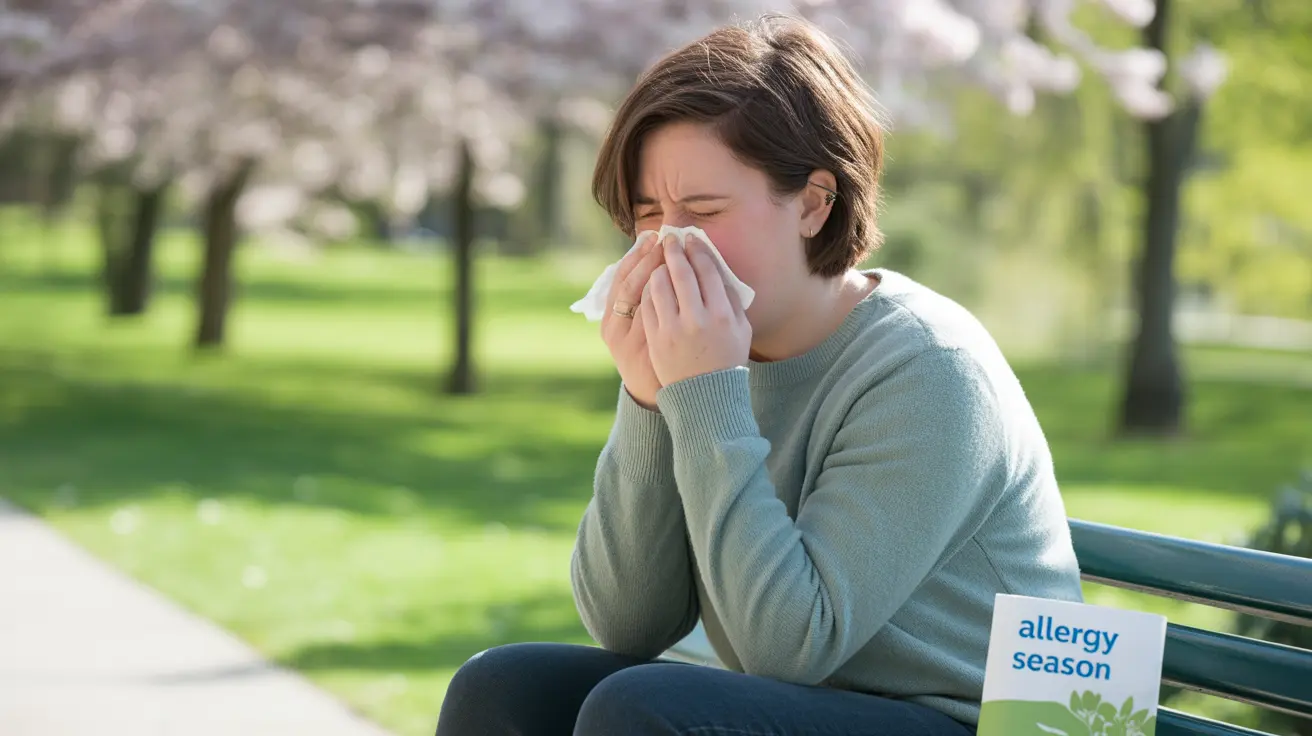Seasonal allergies affect millions of Americans each year, causing a range of uncomfortable symptoms that can significantly impact daily life. These allergic reactions occur when our immune system responds to environmental triggers that vary throughout the year, such as pollen from trees, grasses, and weeds.
Whether you're experiencing seasonal allergies for the first time or looking for better ways to manage recurring symptoms, understanding the nature of these allergies and available treatment options is crucial for finding relief.
Common Symptoms and Seasonal Patterns
Seasonal allergy symptoms can vary in intensity and presentation depending on the time of year and specific allergens present. The most common symptoms include:
- Runny or stuffy nose
- Sneezing and post-nasal drip
- Itchy, watery eyes
- Throat irritation
- Coughing
- Fatigue
Spring Allergies
Spring allergies typically begin in February or March when tree pollen becomes airborne. Common triggers include oak, maple, and birch tree pollen, causing early-season symptoms that can last through May.
Summer Allergies
As spring transitions to summer, grass pollen becomes the primary culprit. Timothy, Bermuda, and other grass species release pollen that can trigger allergic reactions from late May through July.
Fall Allergies
Ragweed and other weed pollens dominate the fall allergy season, typically starting in August and potentially lasting until the first frost.
Prevention and Environmental Control
Managing exposure to seasonal allergens is a crucial first step in controlling symptoms. Consider these effective strategies:
- Monitor local pollen forecasts
- Keep windows closed during high pollen periods
- Use HEPA air filters in your home
- Change clothes after outdoor activities
- Shower before bed to remove pollen from hair and skin
Home Management Tips
Creating an allergen-free environment at home can significantly reduce symptoms. Regular cleaning, using allergen-proof bedding covers, and maintaining optimal humidity levels can help minimize exposure to triggers.
Treatment Options
Over-the-Counter Medications
Several effective OTC medications can help manage seasonal allergy symptoms:
- Antihistamines
- Decongestants
- Nasal corticosteroid sprays
- Eye drops for allergic conjunctivitis
Prescription Treatments
When OTC medications prove insufficient, healthcare providers may prescribe stronger medications such as:
- Prescription-strength antihistamines
- Leukotriene modifiers
- Combination medications
Immunotherapy Options
For severe or persistent seasonal allergies, immunotherapy through allergy shots or sublingual tablets can provide long-term relief by gradually desensitizing the immune system to specific allergens.
Long-term Health Considerations
While seasonal allergies primarily cause temporary discomfort, they can lead to more serious health issues if left unmanaged. Regular monitoring and appropriate treatment can help prevent complications and maintain overall respiratory health.
Frequently Asked Questions
1. What are the most common symptoms of seasonal allergies and how do they vary by season? Seasonal allergy symptoms typically include sneezing, runny nose, congestion, and itchy eyes. In spring, tree pollen causes early symptoms, while summer brings grass pollen reactions, and fall allergies are primarily triggered by ragweed.
2. How can I reduce my exposure to pollen and other allergens during different times of the year? Monitor pollen forecasts, keep windows closed during high pollen periods, use HEPA filters, change clothes after being outdoors, and shower before bed. Consider staying indoors during peak pollen hours (typically early morning and late afternoon).
3. What over-the-counter and prescription medications are effective for treating seasonal allergy symptoms? Effective OTC treatments include antihistamines, decongestants, and nasal corticosteroids. Prescription options include stronger antihistamines, leukotriene modifiers, and combination medications for more severe symptoms.
4. How does allergen immunotherapy (allergy shots) work to reduce seasonal allergy symptoms? Immunotherapy works by gradually exposing your immune system to increasing amounts of specific allergens, helping build tolerance over time. This can lead to long-lasting symptom relief and reduced need for other medications.
5. Can seasonal allergies increase the risk of complications like asthma or sinus infections? Yes, untreated seasonal allergies can increase the risk of developing or worsening asthma symptoms and may lead to chronic sinusitis or other respiratory complications. Regular management and appropriate treatment can help prevent these complications.




